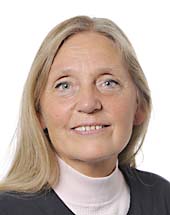
Choisissez la langue de votre document :
- bg - български
- es - español
- cs - čeština
- da - dansk
- de - Deutsch
- et - eesti keel
- el - ελληνικά
- en - English
- fr - français
- ga - Gaeilge
- hr - hrvatski
- it - italiano
- lv - latviešu valoda
- lt - lietuvių kalba
- hu - magyar
- mt - Malti
- nl - Nederlands
- pl - polski
- pt - português
- ro - română
- sk - slovenčina
- sl - slovenščina
- fi - suomi
- sv - svenska
|
| Procedure : 2010/0062(NLE) |
| Select a document : | ||||||
Texts tabled : A7-0370/2010 | Debates : PV 17/01/2011 - 14PV 17/01/2011 - 16 CRE 17/01/2011 - 14 CRE 17/01/2011 - 16 | Votes : PV 19/01/2011 - 6.4Explanations of votes Explanations of votes Explanations of votes | Texts adopted : P7_TA(2011)0010 | |||
| Verbatim report of proceedings | |
| Monday, 17 January 2011 - Strasbourg | OJ edition |
|
| Legal notice - Privacy policy |

















